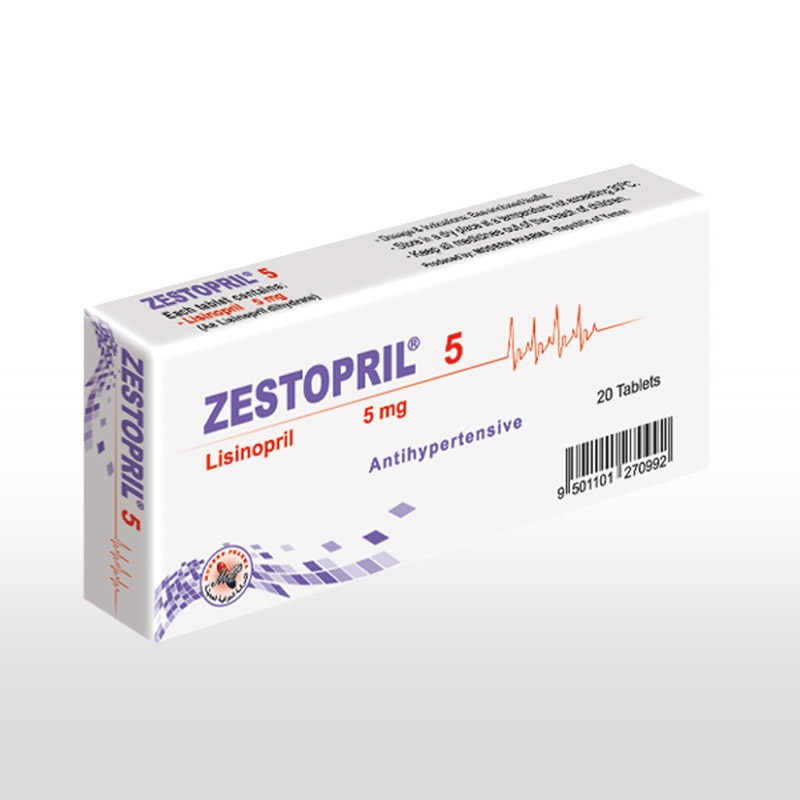ZESTOPRIL 5
- Lisinopril inhibits the angiotensin converting enzyme (ACE) that catalyses the conversion of
angiotensin I, to the vasoconstrictor peptide, angiotensin II. Angiotensin II also stimulates
aldosterone secretion by the adrenal cortex. Inhibition of ACE result decreased in concentration of
angiotensin II which result decreased in concentration vasopressor activity and
reduced aldosterone secretion.
- After oral administration of Lisinopril peak serum concentration occurs within about 7 hours.
Absorption is not affected by the presence of food.
- Lisinopril does not appear to be bound to serum proteins other than to circulation angiotensin
converting enzyme (ACE). Studies in rats indicate that Lisinopril crosses the blood brain barrier
poorly.
- Lisinopril does not metabolized and is excreted entirely unchanged into the urine. Lisinopril cross
the placental barrier and appears in cord blood. It is not know whether Lisinopril is secreted in human
milk or not.


